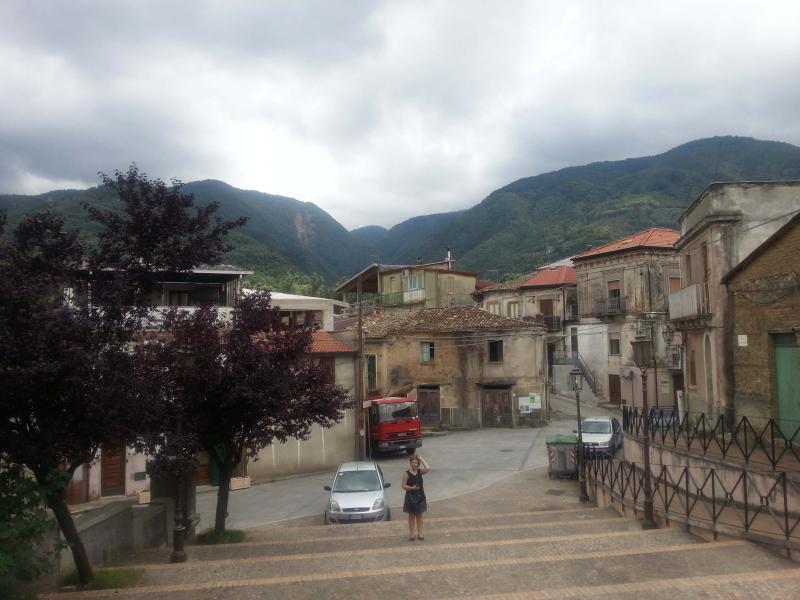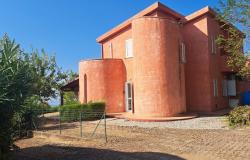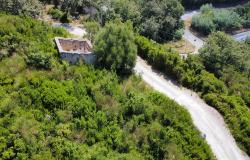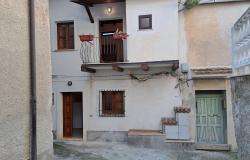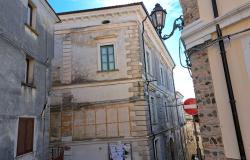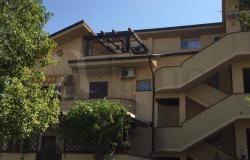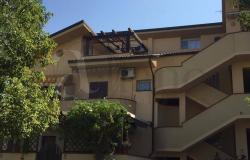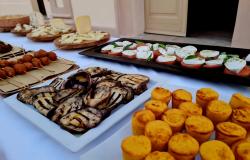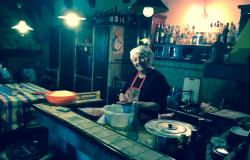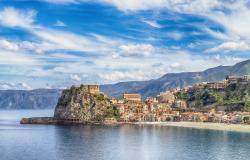Liz Zito’s story is one of perseverance. Her Italian parents, born in small Calabrian villages, migrated to Australia separately – her father in 1925, her mother in 1937.
Liz’s research into her Italian roots began in the 1990s, with little information about her father’s family because he had passed away when she was only four and there were no living relatives on her father’s side; and while she knew many of her mother’s relations in Australia, she didn’t know of any relative still living in Italy.
After her mother died in 1998, Liz began to earnestly research and ask questions of relatives living. But, as she recalls, “progress was slow.” She didn’t travel to Calabria until 2010, when, with a cousin, she visited her mother’s village and, thanks to stories she had told, she was able to guess at the house she might have lived in.
“We met an old lady who remembered her and said my Mother and her sisters were the most beautiful girls in the village,” Liz recalls.
On that trip, Liz also visited her father’s village, but because she had not stories or contacts to rely on, she was not able to discover anything on that trip.
After that trip and moving to Melbourne, she began more thorough research through the Genealogical Society of Victoria. She thus was able to locate the street where her father lived, and other information about family members there.
She traveled to Italy again in 2015, and finally was able to meet some her cousins and see the street where her father grew up. “It was magic,” Liz said.

[Lizzie Zito in Piminoro, her mother's native village in Calabria.]
What prompted you to begin your search to trace your Italian roots?
My father passed away when I was four and we never knew of any living relatives. My mother lived till she was 83 and so had lots of stories and many of her family members migrated to Australia. I was pretty embarrassed by my Italian house as a kid. The salami, onions hanging and so on.
As an adult I became more interested but realized as I linked the maternal stories and people, there was a “gaping hole; the lack of information and knowledge of my paternal side, the Zito family. It became blatantly obvious that I had absorbed so much about my Mother's life, but that I knew so little of my Father and his family's life in Italy.
I took my mother to my cousins home and they began to talk of their grandparents. I loved their accents, and their stories but this time they talked about their grandparents and my Dad.
As they spoke I could picture a jovial Nonna snuggling with my cousins as children, singing softly to them and a happy Nonno bouncing them on his lap as he told stories of long ago. I had a stab of envy as I never knew MY grandparents and then, there was a crazy moment for me of realisation that the grandparents they talked so lovingly of were also mine.
It also got me thinking about my Dad, and the fact that they and my much older siblings had lots of memories of his, of his musicianship (he played the round back mandolin) and I had minimal memories. I think this is what got my curiosity peaked. at this stage I started looking at it all more seriously.

[Perusing old records in the Comune - city hall.]
Please describe the process. Did you already know your ancestral town (by ancestral town I mean the town where your relative(s) who emigrated was from)? If not, how did you find it? Who or what was your first resource when you started your search for your ancestral town and Italian relatives (a relative, an office, an online service, etc.)?
I began by writing down bits and pieces of things that I knew and had heard about from my Mum. But still, I was frustrated that the only real memories of my Dad were those formed from my brothers and sisters stories. ……I had asked my Mum a few questions after her sister's funeral, but I didn't really know the right questions to ask and I couldn't even really articulate what it was I wanted to know. So I did my best. I collected a little pile of note books and always carried one with me so that I could write down stories that either Mum, my brothers and sisters or elder cousins had told me. There were so many names that I couldn't connect but that I loved the sound of.
The more I learnt though, each snippet I found out just made me want to learn more.
When the internet happened, I searched firstly for my parent’s villages as I really had no idea which part of Italy they were from. I found a map of Calabria online and was able to locate their birth places right there near the toe of the boot. I tried to find out as much as I could about the landscape, culture and history of the little villages of Piminoro and Molochio. I found a site dedicated to Mum's village of Piminoro complete with photos of the vast green landscape and was pleased when I found a photo of a religious statue mum used to talk about.
I continued to research, spurred on with enthusiasm. But not being educated or having learnt how to research in any sort of organised manner, my progress was slow. As I found things I printed them.
in 2010 with a couple of my dear cousins from Australia, I made the trek to Calabria. I visited both villages (more about that below) and I visited a local commune and was thrilled to receive a family certificate in the mail on my return for all of my mother’s family. It listed siblings for her that I didn’t know existed. The fella in the commune, in response to my tears at their generosity, told me “Don’t be embarrassed – your heart is in this country and this country is in your blood. The whole trip was life changing and really just fueled my desire to persist in researching and a new need arose; to find a living descendant of my Father.

[Molochio, Calabria, hometown of Liz's father.]
What were the obstacles, if any, during the process of finding your relatives and then getting in touch?
The biggest obstacle was language. I found heaps of documents via LDS microfiche but they were all in Italian and I don’t read it. Bit by bit I learnt how to decipher them and then translate them. But it was (is) so time consuming. The other obstacles are the sometimes lack of response from the communes in Calabria. After I had been there, I wrote to them again and received no response. The main obstacles though were the fact that both my parents and people of their generation were deceased so getting or verifying stories has been hard.
Please describe the moment when you first met your Italian relatives. How did you feel?
I was in my Dad’s village in his street, looking for his house. I couldn’t find it but was soaking up the atmosphere taking video by myself away from my cousin from Australia and the rest of the group I was with. While I was taking video, my Italian cousin who I had yet to meet had driven past and they had pulled him over and told him an Australian cousin was looking for him. So they called me and I was totally consumed with Dad’s street but begrudgingly went to see what they wanted and with them was a grey haired gent.
They told me to tell him who I was. So I told him who my Father was (in my very bad Italian) and I said that my father’s sister was his grandmother. A big smile came over his face, he held my hand and said “cugina” and we were both a little in awe – for me it was a beautiful moment. This was the first blood relation of my father’s that I had ever met. I was overwhelmed. We were invited to his home where I met his brother, their wives and children. They called one of their daughters who could speak English and I told her the story of the discovery and she was thrilled. One of the brothers gave me some papers relating to my father. It confirmed the stories. As we sat in the kitchen talking it was loud and at times I was even more overwhelmed by trying to keep up with the conversation. But I was so so excited and emotional.

[Liz walking down the street where her father lived with her newly found cousin.]
Any fun anecdotes about meeting your Italian relatives?
- Me yelling at my cousin when he called me away from videoing Dad’s street. I just wanted a moment alone there and was disgruntled to go up to where he and the others were with my new cousin!
- The 5 hour lunch on the second visit was hilarious. I was google translating madly to try to make conversation.
- My cousins took me to Dad’s church and I lit a candle for him
They also showed me around their gorgeous backyard gardens of vegetables and fruit trees and 300 year old olive trees.
-My two cousins in Italy have a daughter and a sister in Australia and so I have met both of them as well. The sister migrated in the 70’s to a town only one hour from where I lived but we never knew she was there. She is very happy to have reconnected.
Did you discover any amazing story during the process of searching for your Italian relatives?
Not really – Just validation of stories already told. Also, Mum used to say that Dad wrote to her often but we never had any evidence of this until I found a photo at my sisters, turned it over and found a letter dated 1934! Proof at last.
Ultimately, what has the experience of reconnecting to your Italian roots meant to you?
I can’t describe it in words. It is thrilling to connect with all of the people that I have but to have made connections with my Dad’s family – his blood has been incredible. It somehow brings me closer to him, makes me feel that a little part of him is still alive.
